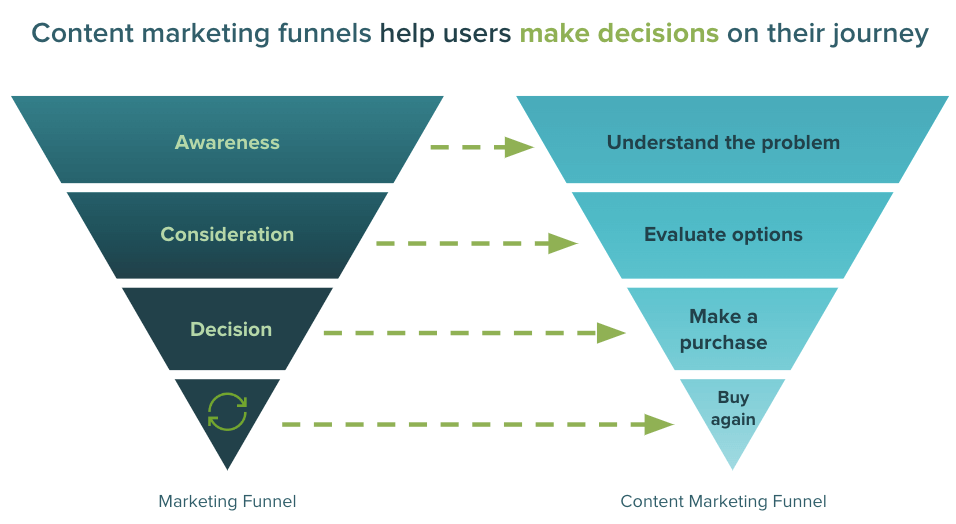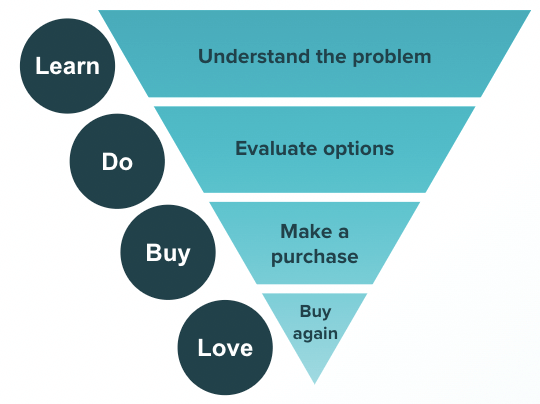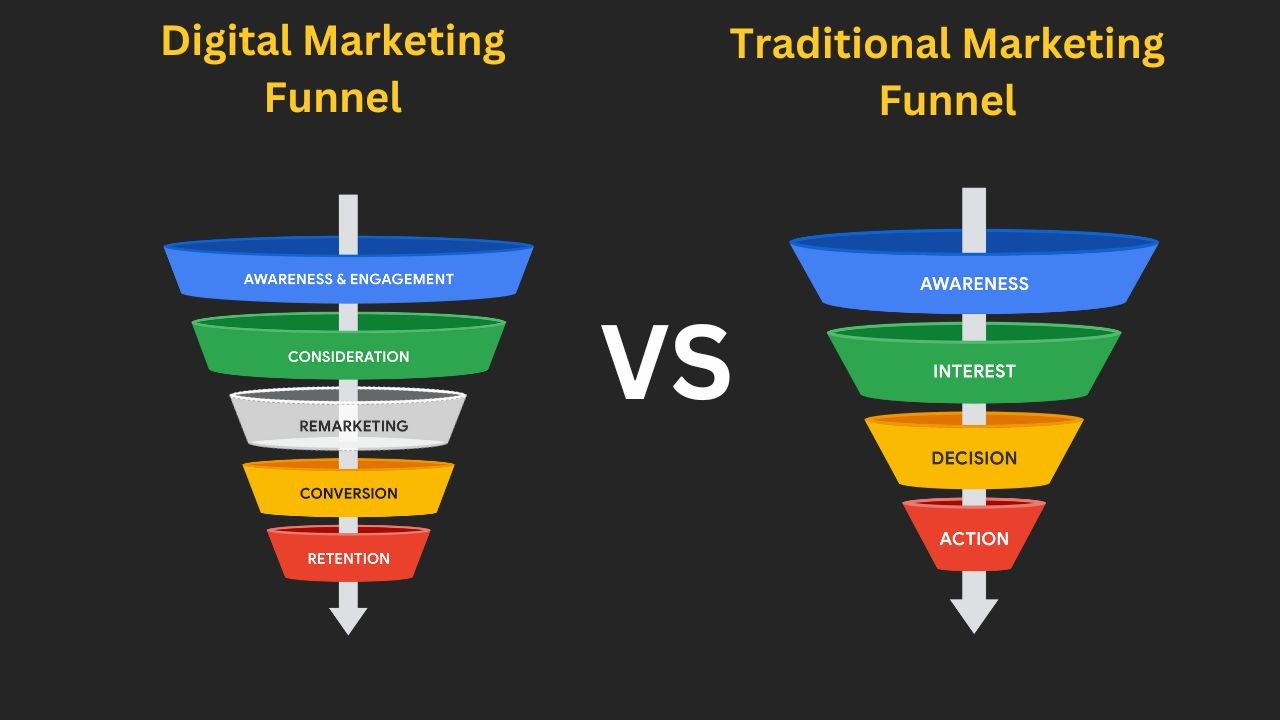The Power of Full Funnel Marketing: Why Every Business Needs It
In the dynamic world of digital marketing, businesses are constantly seeking strategies to maximize customer engagement and drive conversions. Among these strategies, full-funnel marketing stands out as a powerful approach that encompasses the entire customer journey. From initial brand awareness to final conversion, full-funnel marketing ensures a cohesive and impactful experience for potential customers.
In this article, we will delve into the undeniable significance of full-funnel marketing for businesses of all sizes. Discover how implementing a full-funnel marketing approach can fuel brand growth, nurture leads, and generate remarkable results. Get ready to unleash the potential of full-funnel marketing and take your business to new heights of success.
Understanding the Full Funnel Marketing Strategy
To effectively implement a full-funnel marketing strategy, it’s important to have a clear understanding of the marketing funnel concept, the differences between traditional and full-funnel marketing approaches, and the key components that make up a successful full-funnel marketing strategy.
What is Full Funnel Marketing?
Full funnel marketing, also known as the customer journey or marketing funnel approach, is a comprehensive marketing strategy that aims to engage and nurture customers at every stage of their buying journey. It recognizes that customers go through a series of steps before making a purchase, and it aligns marketing efforts to cater to their needs and preferences at each stage. Here’s an overview of the different stages in full-funnel marketing:
- Awareness Stage: The top of the funnel is focused on creating awareness and capturing the attention of potential customers who may not be familiar with your brand or products. Strategies at this stage include content marketing, social media campaigns, search engine optimization (SEO), influencer partnerships, and paid advertising to reach a wider audience and drive traffic to your website or other touchpoints.
- Consideration Stage: In the middle of the funnel, customers have shown interest in your brand and are actively considering their options. Here, the goal is to provide valuable information and resources that educate and guide customers in their decision-making process. Tactics such as email marketing, personalized content, case studies, product demonstrations, webinars, and customer testimonials can be effective in nurturing leads and building trust.
- Conversion Stage: At the bottom of the funnel, the focus is on converting leads into paying customers. This stage involves tactics such as targeted offers, discounts, persuasive copywriting, retargeting ads, customer reviews, and testimonials to encourage customers to make a purchase. It’s crucial to provide a seamless and user-friendly purchasing experience to facilitate conversions.
- Loyalty and Advocacy Stage: Full funnel marketing extends beyond the purchase stage to foster customer loyalty and turn satisfied customers into brand advocates. Repeat purchases, referral programs, personalized communication, loyalty rewards, and social media engagement can help cultivate long-term customer relationships and encourage customers to promote your brand to others.
Key Components of a Full Funnel Marketing Strategy

A successful full-funnel marketing strategy involves integrating and aligning marketing efforts across all stages of the funnel. The key components include:
- Building awareness through top-of-funnel activities: This involves leveraging various tactics such as content marketing, social media engagement, search engine optimization, and online advertising to create brand awareness and attract potential customers.
- Nurturing leads and driving consideration: Once potential customers are aware of your brand, it’s important to nurture those leads and provide valuable information to facilitate their decision-making process. This can be achieved through email campaigns, lead nurturing workflows, personalized content, and targeted advertising.
- Converting leads into customers: To convert leads into customers, businesses need to optimize their conversion process. This includes designing effective landing pages, implementing sales funnels, utilizing persuasive copywriting techniques, and employing call-to-action strategies.
- Building customer loyalty and advocacy: After a customer makes a purchase, the focus shifts to retaining them and turning them into loyal advocates for your brand. This can be achieved through customer retention initiatives, personalized communications, loyalty programs, and referral programs.
- Integration and alignment of marketing efforts: Full funnel marketing requires a cohesive and coordinated approach across all stages. It’s essential to ensure consistent messaging, branding, and customer experience throughout the customer journey.
By implementing these key components, businesses can create a comprehensive full-funnel marketing strategy that maximizes their chances of attracting, converting, and retaining customers at every stage of the funnel.
The Benefits of Full Funnel Marketing

A well-executed full-funnel marketing strategy brings a multitude of benefits to businesses. In this section, we will explore how full-funnel marketing can lead to increased brand visibility and awareness, improved lead generation and nurturing, higher customer acquisition and conversion rates, enhanced customer retention and loyalty, as well as data-driven decision-making and continuous optimization.
1. Increased Brand Visibility and Awareness
Building brand visibility and awareness is crucial for business success. A full-funnel marketing strategy allows businesses to achieve this by:
- Expanding reach through multiple touchpoints: By implementing a full-funnel approach, businesses can engage potential customers at various stages of the marketing funnel. This expands the reach of their brand and messaging, increasing the chances of reaching a broader audience.
- Establishing a strong brand presence throughout the customer journey: A comprehensive marketing strategy ensures that a brand is consistently present at every touchpoint of the customer journey. This builds brand recognition and reinforces the brand message, leading to improved awareness and recall.
2. Improved Lead Generation and Nurturing
Effective lead generation and nurturing are vital for converting potential customers into paying customers. Full funnel marketing enables businesses to excel in this area by:
- Capturing and nurturing leads at various stages of the funnel: With a full-funnel strategy, businesses have the opportunity to capture leads at different stages of the customer journey. This allows for tailored lead nurturing efforts that address specific pain points and move leads closer to conversion.
- Maximizing the potential of each lead and improving conversion rates: By understanding where each lead is in the marketing funnel, businesses can provide targeted and relevant content, offers, and incentives. This personalized approach increases the chances of converting leads into customers and improves overall conversion rates.
3. Higher Customer Acquisition and Conversion Rates
Full funnel marketing can significantly impact customer acquisition and conversion rates in the following ways:
- Optimizing conversion funnels and reducing drop-offs: By analyzing the customer journey and identifying potential areas of friction or drop-offs, businesses can optimize their conversion funnels. This involves streamlining the path to conversion, removing barriers, and providing a seamless experience, resulting in higher conversion rates.
- Enhancing customer experience and satisfaction: A full-funnel marketing strategy prioritizes customer experience at every stage of the funnel. By delivering consistent, personalized, and value-driven interactions, businesses can create positive experiences that lead to higher customer satisfaction and increased conversion rates.
4. Enhanced Customer Retention and Loyalty
Retaining existing customers and fostering loyalty is essential for long-term business growth. Full funnel marketing supports these objectives by:
- Fostering long-term relationships with customers: A comprehensive marketing approach extends beyond the initial sale and focuses on building ongoing relationships with customers. By providing exceptional customer service, personalized communications, and valuable post-purchase experiences, businesses can foster loyalty and increase customer retention.
- Encouraging repeat purchases and referrals: Satisfied customers are more likely to make repeat purchases and refer your business to others. Full funnel marketing strategies incorporate tactics such as loyalty programs, referral incentives, and targeted retention campaigns to encourage customer advocacy and repeat business.
5. Data-driven Decision-making and Continuous Optimization
Data-driven decision-making is a cornerstone of effective marketing. Full funnel marketing enables businesses to make informed decisions and optimize their strategies through:
- Leveraging data to measure and improve marketing performance: Full funnel marketing relies on data analysis to gain insights into customer behavior, campaign effectiveness, and overall marketing performance. By leveraging data from various sources, businesses can make data-backed decisions to refine their marketing strategies and achieve better results.
- Iterative testing and optimization for better results: With a full-funnel marketing strategy, businesses can conduct iterative testing and optimization to continuously improve their marketing efforts. By testing different approaches, tracking performance metrics, and making data-driven adjustments, businesses can optimize their campaigns, messaging, and customer experiences for optimal results.
In conclusion, a well-implemented full-funnel marketing strategy offers numerous benefits to businesses. It increases brand visibility and awareness, improves lead generation and nurturing, boosts customer acquisition and conversion rates, enhances customer retention and loyalty, and enables data-driven decision-making and continuous optimization. By adopting a comprehensive approach that covers every stage of the marketing funnel, businesses can maximize their marketing efforts and drive long-term success.
Implementing a Full Funnel Marketing Strategy

Implementing a successful full-funnel marketing strategy requires careful planning, strategic decision-making, and continuous optimization. In this section, we will explore the key steps involved in implementing a full-funnel marketing strategy, including defining marketing objectives and goals, mapping the customer journey, developing content for each stage of the funnel, integrating marketing channels and tactics, and measuring and optimizing performance.
1. Defining Marketing Objectives and Goals
To start implementing a full-funnel marketing strategy, it’s crucial to define clear marketing objectives and goals that align with your overall business objectives. This involves:
- Setting clear objectives aligned with business goals: Clearly define what you aim to achieve with your marketing efforts. Whether it’s increasing brand awareness, driving lead generation, improving customer retention, or boosting sales, align your marketing objectives with your business goals to ensure strategic focus.
- Identifying relevant key performance indicators (KPIs): Determine the metrics that will help you measure the success of your marketing efforts. Identify KPIs such as website traffic, conversion rates, customer acquisition costs, customer lifetime value, and social media engagement to track and evaluate your performance.
2. Mapping the Customer Journey
Understanding the customer journey is essential for implementing an effective full-funnel marketing strategy. This involves:
- Understanding customer touchpoints and interactions: Map out the various touchpoints and interactions your customers have with your brand throughout their journey. This includes interactions across different marketing channels, such as social media, email, website, and offline interactions. Identify key touchpoints where customers engage with your brand.
- Creating personalized experiences at each stage: Tailor your marketing efforts to deliver personalized experiences at each stage of the customer journey. Understand the needs, pain points, and motivations of customers at each stage and develop targeted messaging and content to engage and guide them through the funnel.
3. Developing Content for Each Stage of the Funnel
Content plays a critical role in a full-funnel marketing strategy. Develop content that aligns with the different stages of the funnel by:
- Tailoring content to address customer needs at different stages: Create content that addresses the specific needs and challenges of customers at each stage of the funnel. For the awareness stage, focus on educational and informative content. In the consideration stage, provide content that showcases the value and benefits of your products or services. And in the conversion stage, offer content that facilitates the decision-making process and removes any barriers to conversion.
- Aligning content with the buyer’s journey: Map your content to the buyer’s journey by understanding the questions, concerns, and information needs of customers at each stage. Develop content that guides them through the buyer’s journey, from initial awareness to final conversion.
4. Integrating Marketing Channels and Tactics
To maximize the impact of your full-funnel marketing strategy, it’s important to integrate various marketing channels and tactics. This involves:
- Utilizing a mix of online and offline channels effectively: Leverage a combination of online and offline channels to reach and engage your target audience. This could include digital advertising, social media marketing, content marketing, email marketing, search engine optimization, as well as offline channels such as print, events, and direct mail. Determine the most effective channels for each stage of the funnel and create a cohesive omnichannel experience.
- Coordinating marketing efforts for a consistent brand experience: Ensure that your marketing efforts across different channels and tactics are coordinated and deliver a consistent brand experience. Maintain a cohesive brand voice, visual identity, and messaging throughout the customer journey to reinforce your brand and build trust.
5. Measuring and Optimizing Performance
Measuring and optimizing performance is essential to the success of your full-funnel marketing strategy. This involves:
- Selecting relevant metrics and analytics tools: Identify the key metrics that align with your marketing objectives and KPIs. Utilize analytics tools such as Google Analytics, marketing automation platforms, and CRM systems to track and measure the performance of your marketing campaigns and channels.
- Analyzing data to identify areas for improvement: Regularly analyze the data and metrics to gain insights into the effectiveness of your full-funnel marketing strategy. Identify areas of improvement, such as high drop-off rates, underperforming channels, or low conversion rates. Use the insights to make data-driven decisions, optimize your marketing efforts, and refine your strategies for better results.
By following these steps and implementing a full-funnel marketing strategy, businesses can effectively engage customers at each stage of the funnel, deliver personalized experiences, and optimize their marketing efforts for maximum impact and success.
Traditional vs. Full Funnel Marketing

Traditional marketing typically focuses on the conversion stage of the funnel, with a heavy emphasis on driving immediate sales. It tends to overlook the earlier stages of awareness and consideration, resulting in missed opportunities to engage potential customers.
In contrast, full-funnel marketing takes a comprehensive approach that covers all stages of the marketing funnel. It recognizes the importance of building brand awareness, nurturing leads, and fostering long-term customer relationships. By addressing each stage of the funnel, businesses can maximize their chances of attracting, converting, and retaining customers.
Advantages of full-funnel marketing over traditional marketing include:
- Better targeting and personalization: Full funnel marketing allows businesses to tailor their messaging and strategies based on the specific needs and preferences of customers at each stage.
- Improved lead nurturing: By implementing full-funnel marketing tactics such as email campaigns and lead nurturing, businesses can effectively guide potential customers through the consideration stage, increasing the likelihood of conversion.
- Enhanced customer retention and advocacy: Full funnel marketing strategies focus on building long-term relationships with customers, fostering loyalty, and transforming satisfied customers into brand advocates.
Conclusion
In summary, adopting a full-funnel marketing strategy is essential for businesses to effectively engage customers and drive growth. This comprehensive approach considers the entire customer journey, from awareness to conversion and beyond, allowing businesses to nurture leads and build strong relationships. By aligning marketing efforts with each stage of the funnel and leveraging data-driven insights, businesses can optimize their strategies and create meaningful experiences for their audience. Embrace the power of the full funnel marketing strategy to fuel your business’s success in the dynamic world of digital marketing.
